Finding the "Perfect" Sunscreen Is Practically an Art—We Love These 17 Options
I've been slightly fixated on learning about skincare and doing all I can to ensure my skin is the healthiest it can be since I turned 30. But it's not all about anti-aging and fending off wrinkles. In fact, turning the big 3-0 made me rethink my overall health. Now that I'm about five months into my 31st year, I feel like I've made some progress on this goal. I've been stepping outside of my fitness comfort zone (like trying indoor cycling and barre) and doing new workouts. I've made it a priority to eat better while also allowing for some fun now and then. I've been taking more care of and paying better attention to my mental health. And I've been taking in all the skincare knowledge I can.
That said, I realized I knew only the bare minimum about sunscreen, particularly body sunscreen. Sure, I knew it was a vital skincare product and one you could buy at the drugstore. I applied it diligently every day, but I knew nothing about the differences in sunscreen types, the ingredients, or what SPF levels really meant. Below, learn all there is to know about chemical and mineral sunscreens, but first, shop our favorite products.
Mineral Sunscreens
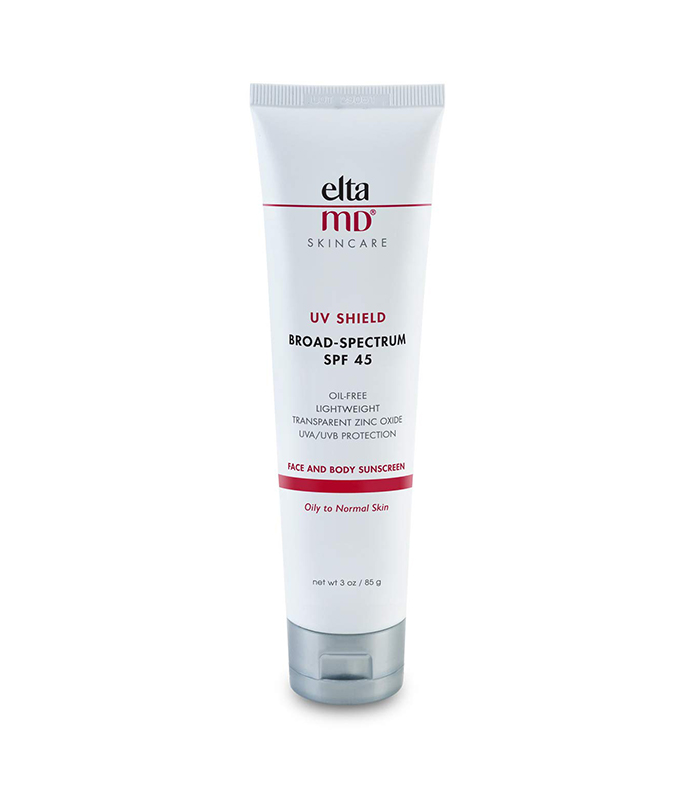
This sheer sunscreen is recommended for oily to normal skin types. It contains 9% zinc oxide and antioxidants to protect against free radicals.
Pros: Paraben-free, fragrance-free, vegan, noncomedogenic, oil-free
Cons: Reviewers prefer the previous iteration's application pump
Customer review: "Recommended by my dermatologist more than a decade ago, the UV Shield Broad Spectrum SPF 45 is *the best sunscreen* for sensitive skin. It won't pill under makeup. It doesn't clog pores, trigger inflammation, or become warm with sun exposure (thus triggering melasma or dermatitis)."
Size: 3 ounces
Key ingredients: Zinc oxide, vitamin E
Type: Lotion
Skin type: All skin types
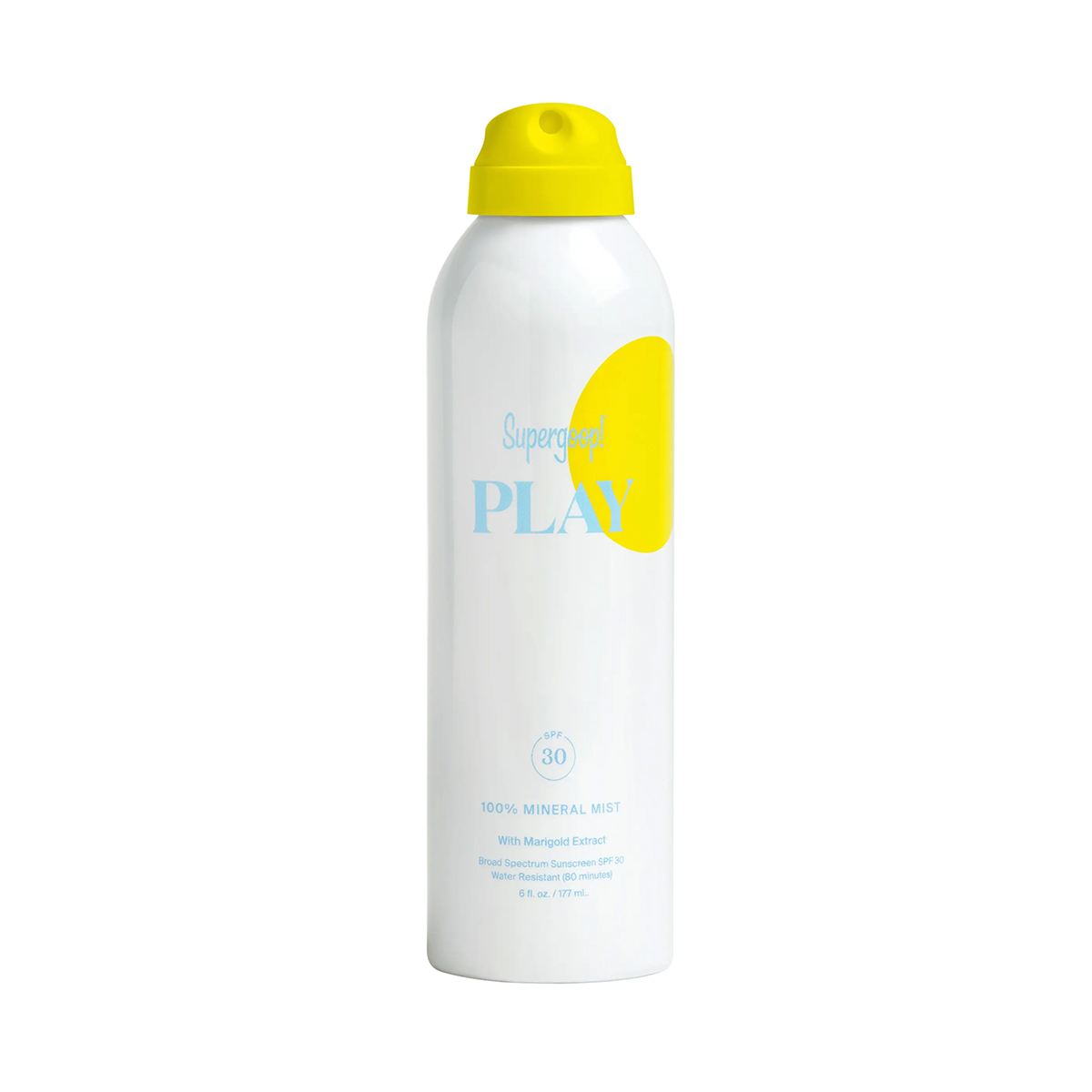
I'm a big fan of Supergoop sunscreens, and the brand's mineral mist spray is no exception. The water- and sweat-resistant formula features marigold extract to smooth and protect skin, sunflower-seed oil to retain moisture, and chamomile extract to soothe sensitivity.
Pros: Soothing on the skin, great for outdoor activity
Cons: Formula can leave skin sticky
Customer review: "Like any sunscreen spray, you have to rub it in—you can't just spray and go. The spray goes on white, which is nice to see where the product is, and then it turns clear once rubbed in. Unlike the lotion that kind of leaves a greasy film, this spray almost has a cooling effect, and I hardly feel like I'm wearing sunscreen. If you're looking to switch to a mineral spray, this is a must!"
Size: 6 ounces
Key ingredients: Marigold extract, sunflower-seed oil, chamomile extract
Type: Spray
Skin type: All skin types
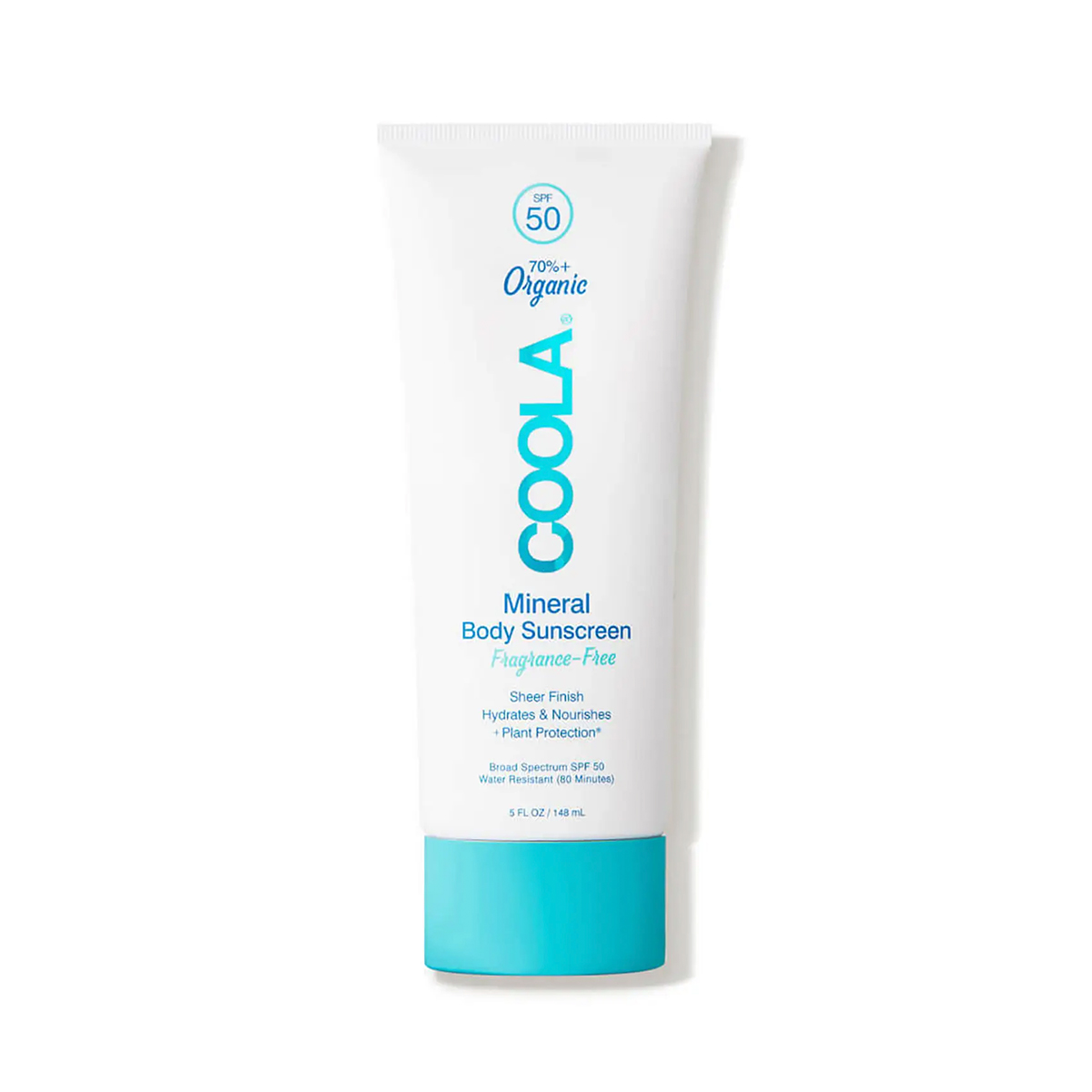
Coola's mineral sunscreen contains a mix of titanium dioxide and zinc oxide to provide UVA and UVB protection. Other ingredients include red raspberry–seed oil, buriti oil, meadowfoam-seed oil, and prickly pear extract. They're all antioxidant-rich to protect and hydrate the skin.
Pros: Hydrating and sheer finish, fights free radicals, reef-friendly
Cons: Product may leave white stains and/or does not dry clear
Customer review: "This mineral protection sunscreen sprays on smooth. It is light and absorbs quickly. I feel confident and protected when I use this sunscreen."
Size: 5 ounces
Key ingredients: Zinc oxide, titanium dioxide, safflower oleosomes, red raspberry–seed oil
Type: Lotion
Skin type: Best for dry skin
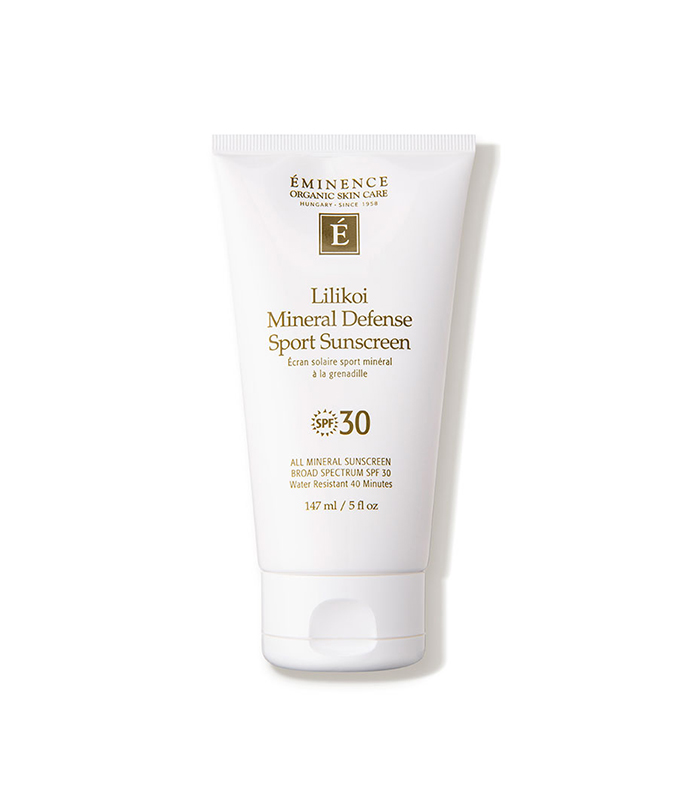
Eminence is a favorite organic skincare brand of WWW beauty director Erin Jahns and associate beauty editor Shawna Hudson. Its zinc oxide sunscreen features lilikoi (passion fruit) seed oil, which is packed with vitamin C and works to reduce the appearance of fine lines and wrinkles.
Pros: Water-resistant, moisturizing, works for the face and body
Cons: Consistency of the product is a bit watery
Customer review: "Lilikoi Mineral Defense Sport Sunscreen SPF 30 from Eminence Organic Skin Care shields all skin types against harmful UVA rays, especially during outdoor activities. This antioxidant-rich sunscreen moisturizes dry skin and minimizes the appearance of damage from sun exposure. Infused with lilikoi-seed oil, it also nourishes and improves the appearance of aging skin."
Size: 5 ounces
Key ingredients: Lilikoi-seed oil, vitamin C
Type: Lotion
Skin type: All skin types
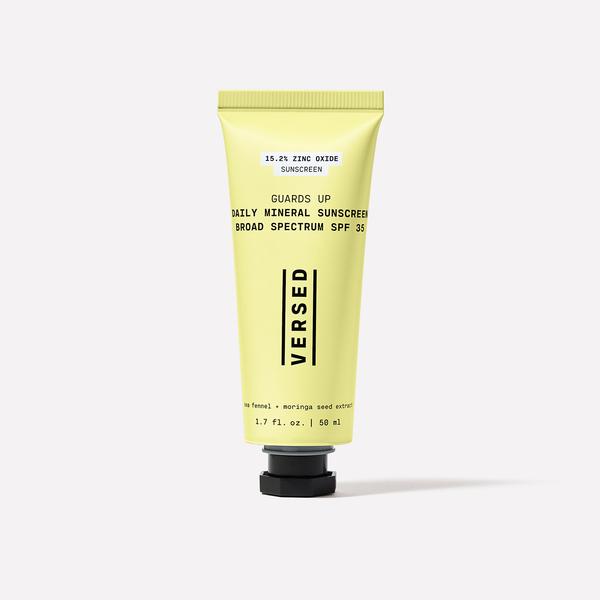
This mineral sunscreen is super lightweight yet protects against the sun, environmental damage, and even blue-light damage from phone and computer screens. It has a creamy feel that doesn't leave a white cast thanks to a subtle peach tint.
Pros: Provides triple protection (UVA, UVB, and blue light), made with sustainable ingredients
Cons: Product can pill
Customer review: "This is the first sunscreen I've ever tried that doesn't make my eyes sting, and I've tried * a lot* of sunscreens. (And many of them were way more expensive than this!) It's cruelty-free, sinks into my skin nicely, and dries to a matte finish so I'm not walking around all day looking weirdly glossy. 10/10!"
Size: 2.5 ounces
Key ingredients: Zinc oxide, crithmum maritimum extract, moringa oleifera–seed extract
Type: Lotion
Skin type: All skin types
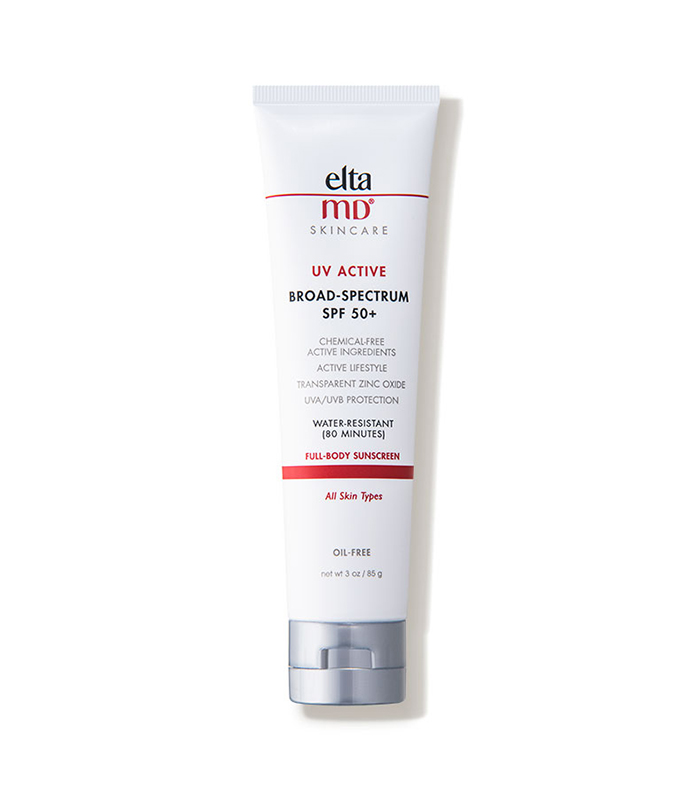
Ellen Marmur, MD, is a board-certified dermatologist and founder of Marmur Medical in New York City. She recommends EltaMD's UV Active mineral sport sunscreen, which is water-resistant for up to 80 minutes. "This is a great everyday sunscreen that can be applied when you wake up in the morning and then be left in your bag to be reapplied throughout the day," she says. "So when you go shopping, gardening, or exercising outside, you can rest assured that your skin is receiving the protection it needs."
Pros: Water-resistant, perfect for everyday use, protects against signs of aging
Cons: It is a bit pricey for the size
Customer review: "Easy to get on and cover against sun damage. It smells good, and you can get it in clear or lightly tinted! I like it because it's 50 SPF."
Size: 3 ounces
Key ingredients: Zinc oxide, knotgrass extract, jojoba esters, vitamin E
Type: Lotion
Skin type: All skin types
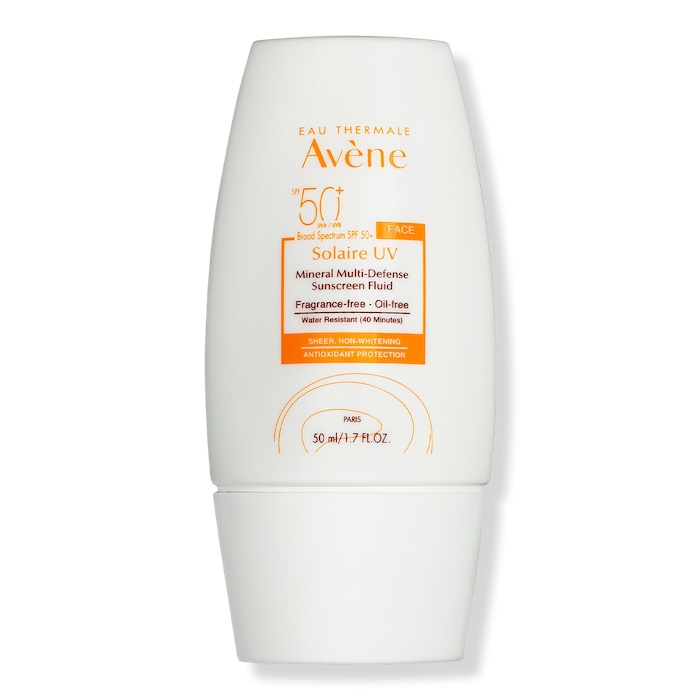
This sunscreen features 100% mineral filters to provide the ultimate UVA/UVB protection. It's also infused with vitamin E for free radical protection. The best part? It leaves a matte finish, so you won't feel sticky or slick after applying.
Pros: Provides triple protection (UVA, UVB, and blue light), water-resistant, lightweight
Cons: Product can separate inside the container over time
Customer review: "Love the texture—blends into my skin nicely. Even firms it to some degree. It's great, especially for lighter complexions."
Size: 1.7 ounces
Key ingredients: Bisabolol, allatoin, niacinamide
Type: Lotion
Skin type: Best for sensitive skin
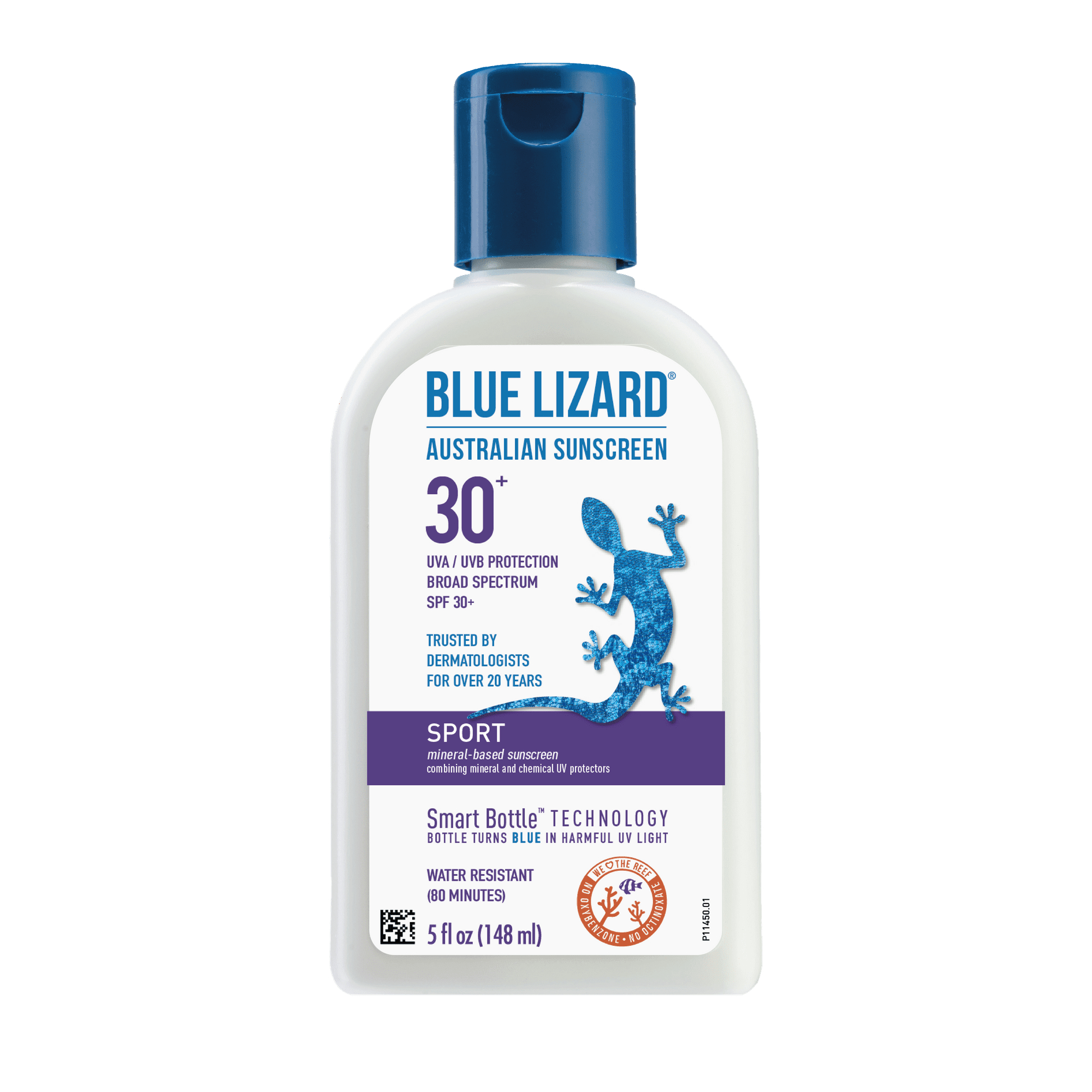
This mineral sunscreen is both paraben- and fragrance-free, so it won't irritate the skin. It's also water-resistant for up to 40 minutes, so it's good for the beach, pool, or any other outdoor activity. The bottle turns blue when exposed to UV rays, so it also acts as a reminder to apply or reapply.
Pros: Affordable, water-resistant, good for sensitive skin
Cons: Can leave a white cast
Customer review: "This sunscreen is the best I have ever used. Nice to apply, great coverage, and excellent protection. I did not burn at all, and my skin wasn't all dry and cakey."
Size: 5 ounces
Key ingredients: Titanium dioxide, zinc oxide
Type: Lotion
Skin type: Best for sensitive skin
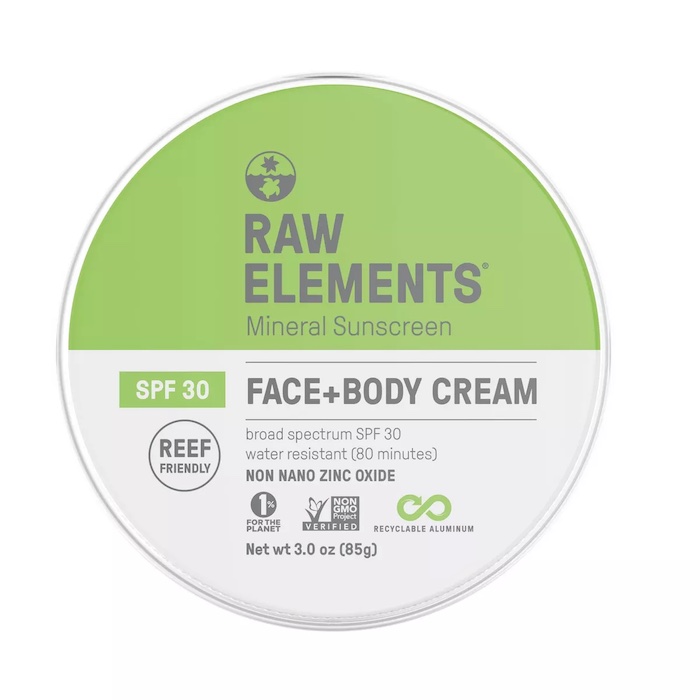
This sunscreen's gentle and moisturizing formula protects the skin for up to 80 minutes. It's also soy-, gluten-, and nut-free for anyone with those sensitivities.
Pros: Reef-safe, cruelty-free, reusable container, nourishing formula
Cons: Might feel messy to apply
Customer review: "Decided to try this item as it was rated well on the EWG site. Absolutely loved by everyone in our household. Will continue to purchase this brand. Rubs in well, and sun protection was great! Highly recommend."
Size: 3 ounces
Key ingredients: Zinc oxide, organic beeswax, cannabis sativa–seed oil
Type: Gel
Skin type: All skin types
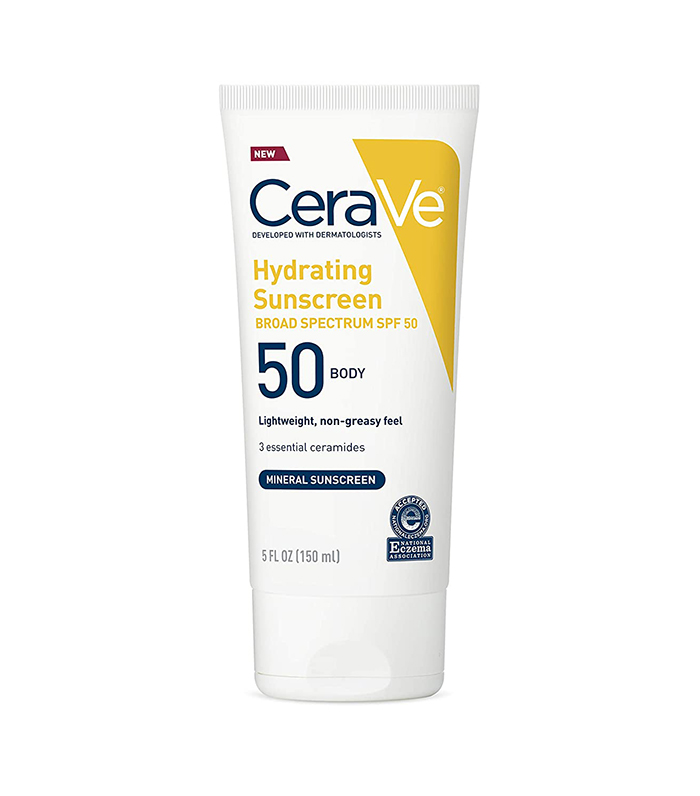
This mineral sunscreen is formulated with ceramides to lock in moisture and strengthen the skin barrier. That, paired with the fact that it's allergy-tested and oil- and fragrance-free, makes it a good option for anyone with sensitive skin.
Pros: Allergy-tested, fragrance-free, paraben-free, gentle on the skin
Cons: Some customers say it doesn't blend well
Customer review: "This tinted sunblock is excellent! It smoothes out skin without giving the appearance of any makeup at all! It is also extremely effective against the sun’s rays. I haven't had any sunburn this entire summer. Even a modest layer in the morning protects my skin even eight hours after application! LOVE THIS STUFF!"
Size: 5 ounces
Key ingredients: Ceramides, hyaluronic acid
Type: Lotion
Skin type: Best for sensitive skin
Chemical Sunscreens
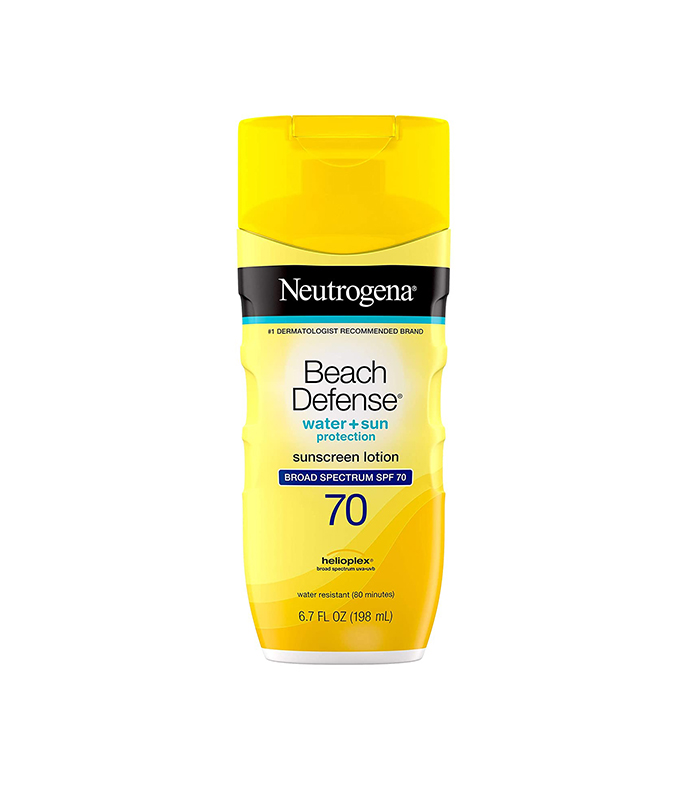
A must for summer beach days, Neutrogena's water-resistant sunscreen protects for up to 80 minutes. It's also fast-absorbing and lightweight, so you won't feel that slick residue like you would with other formulas.
Pros: Water-resistant up to 80 minutes, lightweight, fast-absorbing
Cons: Can cause a burning sensation if it gets in your eye
Customer review: "Not only does it have a high SPF compared to other brands, but it literally goes above simple skin protection in the sun. I use it on my face and body, and it leaves my skin feeling so soft and healthy. Honestly love it so much for not just beach and water use, but daily too."
Size: 6.7 ounces
Key ingredients: Oxybenzone, beeswax
Type: Lotion
Skin type: All skin types
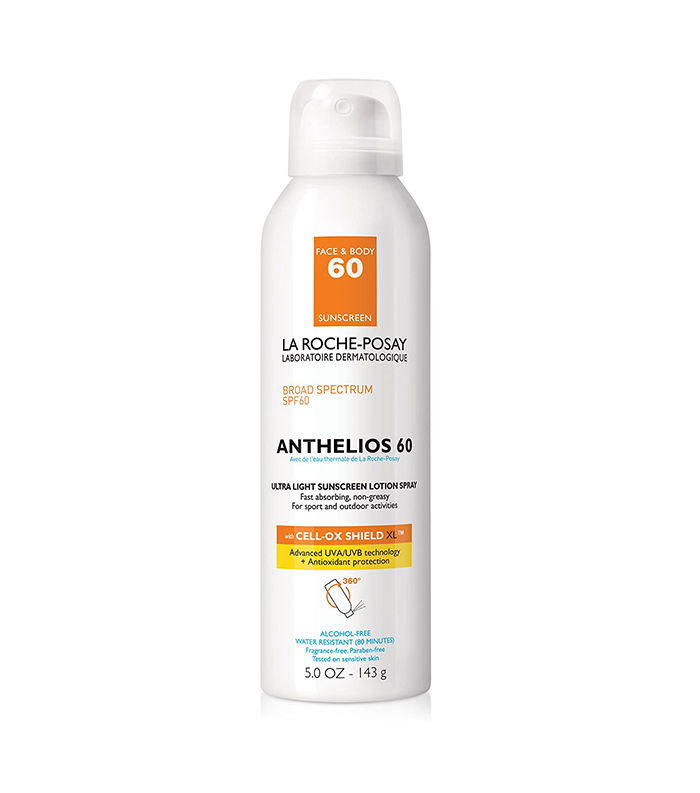
It's so easy to spray this lightweight sunscreen from La Roche-Posay. It provides even coverage, and the formula contains antioxidant protection to defend against those pesky free radicals.
Pros: Works for both face and body, ultralight feel, antioxidant-rich formula
Cons: Can feel a bit greasy upon initial application
Customer review: "I have been using La Roche-Posay sunscreen after doing a lot of research, and although I was at first a skeptic, I am so happy that I tried this out. This sunscreen is light, and I can wear it all day without breaking out/triggering an eczema flare-up."
Size: 5 ounces
Key ingredients: Thermal spring water, antioxidant complex
Type: Spray
Skin type: All skin types
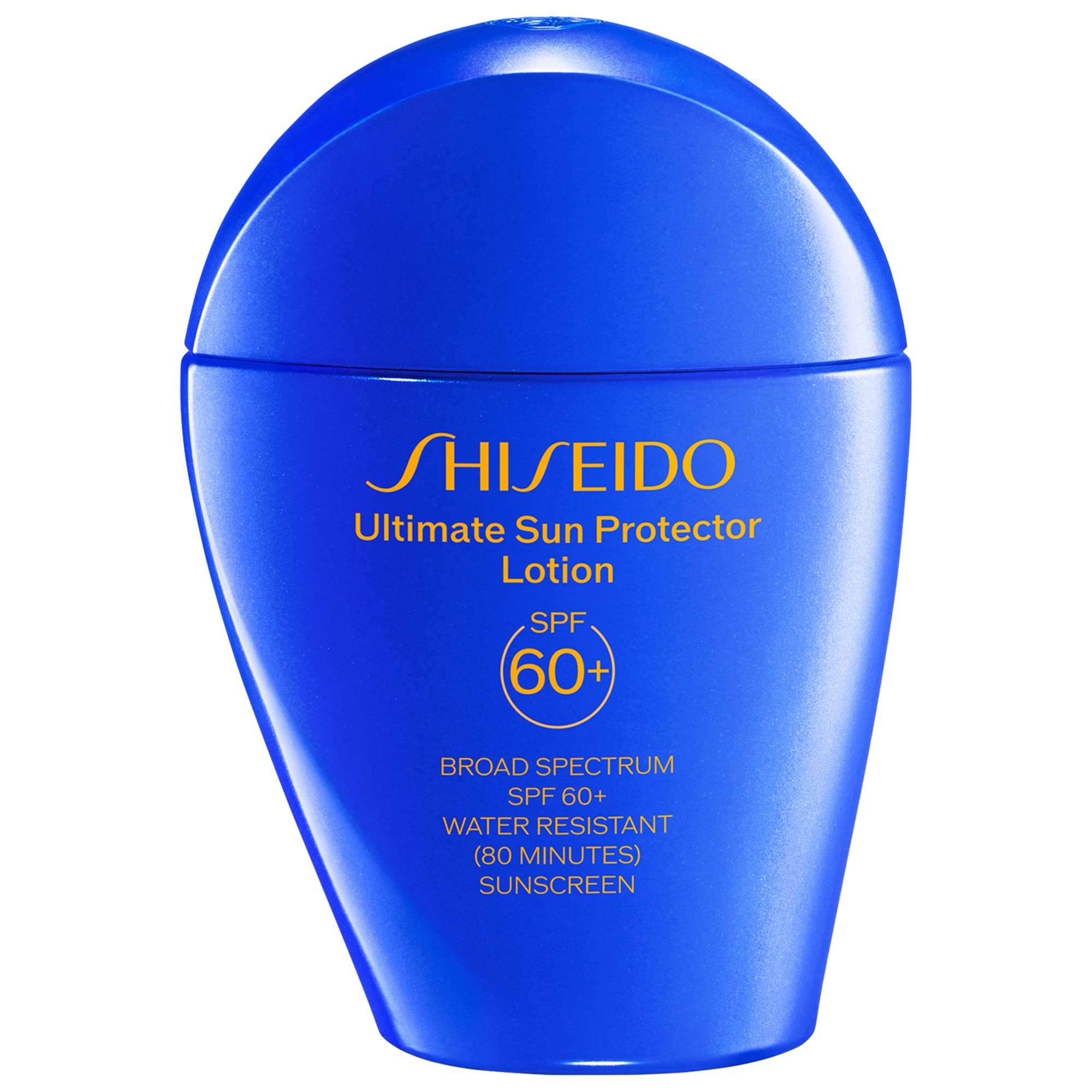
This formula is super high-tech. It has SynchroShield Technology, which senses heat and creates a stronger barrier, and adds another layer of sunscreen protection with exposure to perspiration or water.
Pros: Works well in strong heat, water-resistant, great size for travel
Cons: Some customers say that the formula is too watery
Customer review: "It feels incredibly luxurious. It's turned putting on sunscreen from a chore that I avoid to something I actually look forward to doing. It does feel kind of greasy/oily when it comes out of the bottle, but it dries down to a very nice lightweight finish with minimal fuss."
Size: 1.7 ounces
Key ingredients: Avobenzone, camellia sinensis–leaf extract
Type: Lotion
Skin type: Best for dry or combination skin
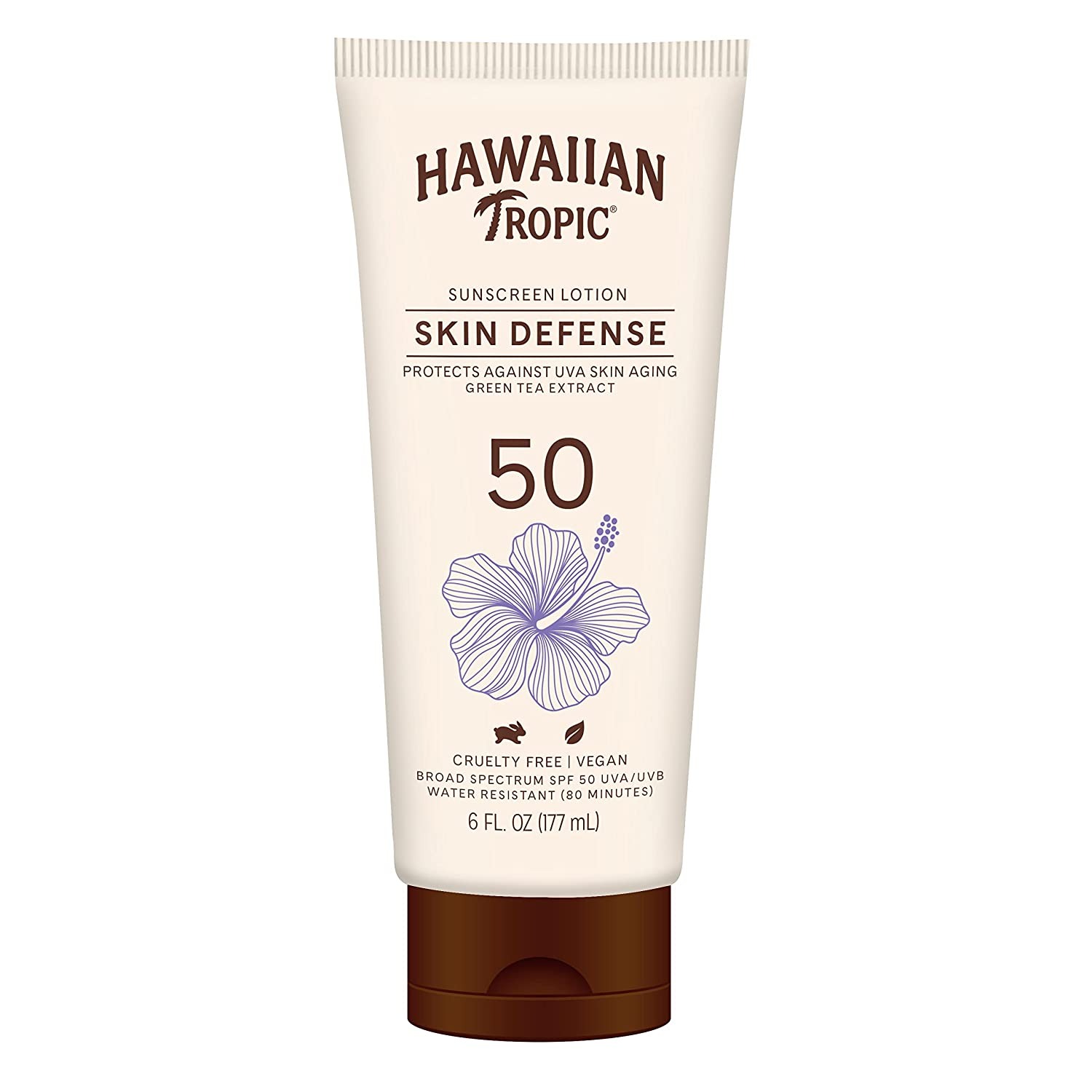
This nongreasy sunscreen is packed with antioxidants to protect the skin against aging free radicals. Some people like scented sunscreens, and some people don't, but the tropical-inspired fragrance in this one transports us to a lush island.
Pros: Lightweight formula, prevents free radical damage, jasmine scent
Cons: Fragrance is strong
Customer review: "Oh my goodness, I purchased this for the beach last month (we went in June), and it is lovely. It smells SO good! It is so smooth and creamy going on. Best of all, it has a high SPF, and it really protected my skin. I did not burn, but I also wore a wide-brimmed hat as well."
Size: 6 ounces
Key ingredient: Green tea extract
Type: Lotion
Skin type: All skin types
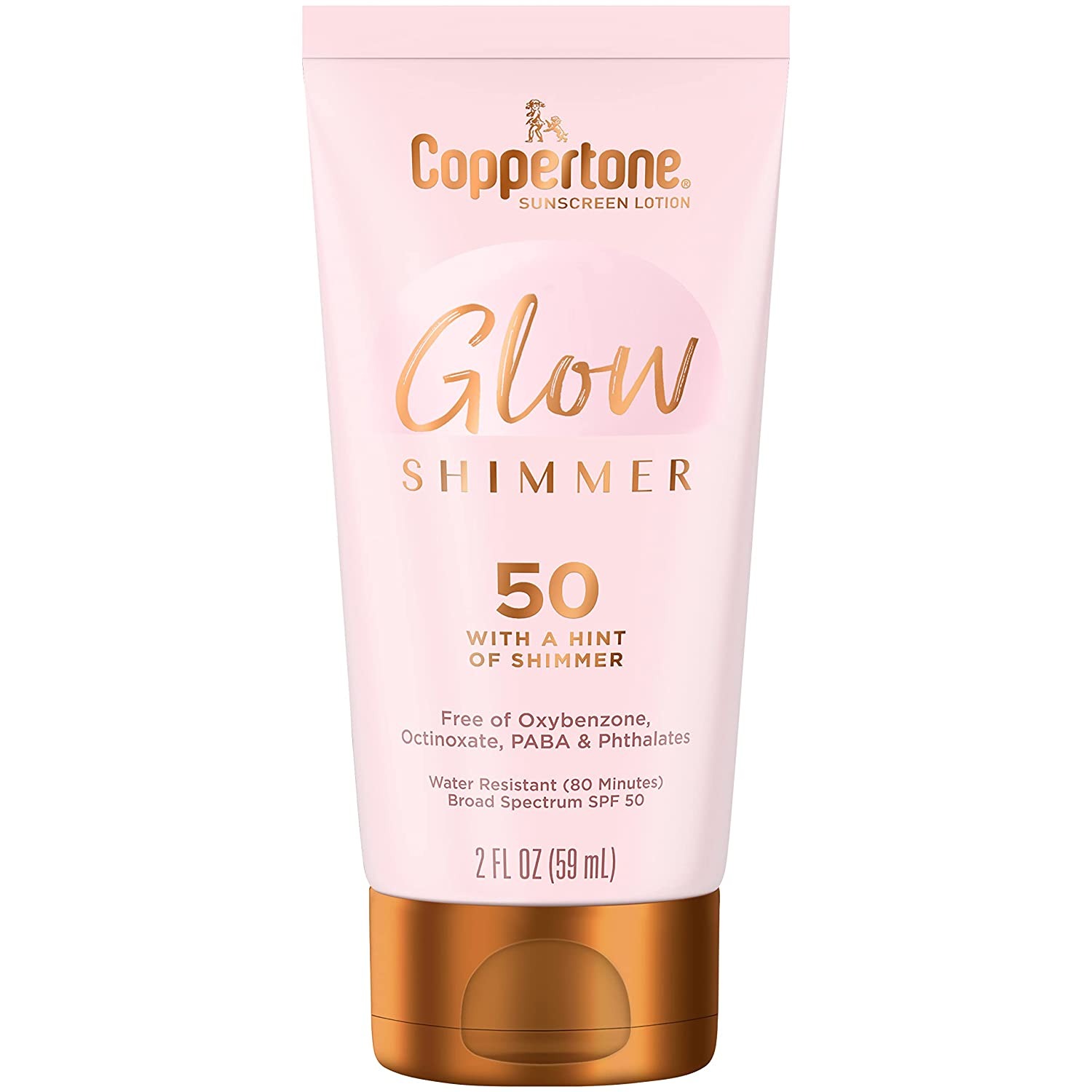
This sunscreen from Coppertone is infused with shimmery particles to leave your limbs glowing. Consider it a sunscreen-makeup hybrid.
Pros: Shimmer finish, water-resistant formula
Cons: Some users might not like the shimmery finish
Customer review: "It's lightly shimmery, but the tiny glimmers let you know that you covered that area—and maybe they help to block the burning rays! Stays on well. Was out seven hours in the Phoenix sun in July—in water the whole time—reapplied 1x and did not burn."
Size: 2 ounces
Key ingredients: Avobenzone, homosalate, octisalate
Type: Lotion
Skin type: All skin types
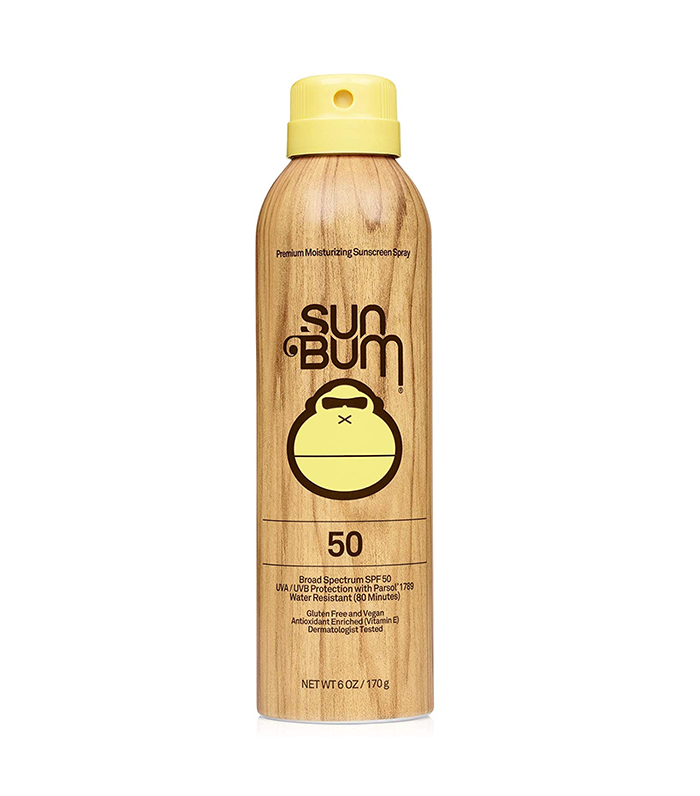
Suitable for all skin types, this sunscreen spray is packed with vitamin E to smooth and protect the skin from damaging free radicals. It's water-resistant for up to 80 minutes and is oil-free, which makes it a good option for those who struggle with body breakouts.
Pros: Oil-free, ultra-sheer formula
Cons: Can feel sticky
Customer review: "Sun Bum is already the best sunscreen, but the spray makes it better. The spray can cover the areas of your back that you can't reach. It's very convenient. Smells good."
Size: 6 ounces
Key ingredients: Avobenzone, vitamin E
Type: Spray
Skin type: Best for acne-prone skin
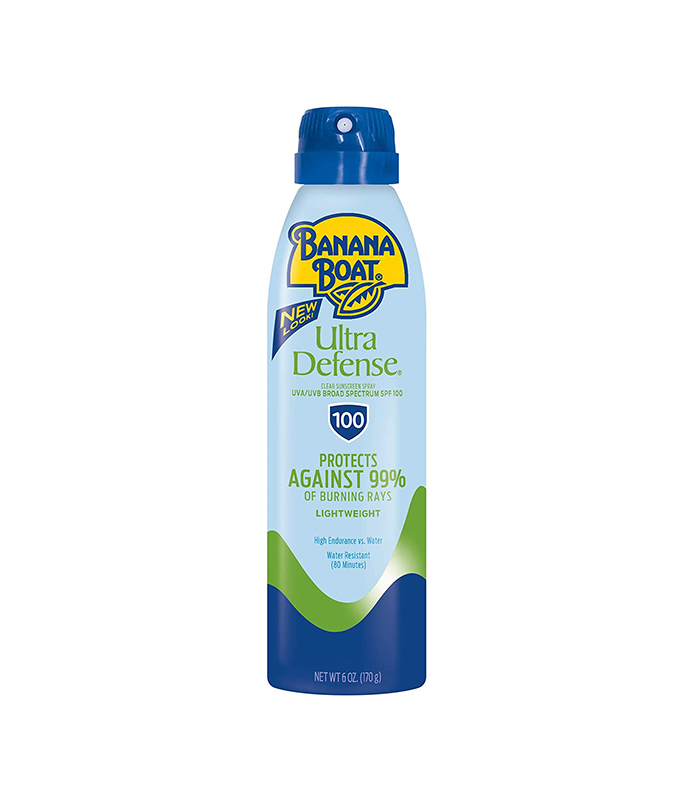
Banana Boat sunscreens always remind me of summer. This version is enriched with aloe and vitamins A and E to soothe and protect the skin. It's also lightweight, water-resistant, and rub-free.
Pros: Water-resistant, hydrating, non-greasy formula
Cons: Can stain clothing if sprayed too closely
Customer review: "I never liked using sunscreen, as it was too greasy. This sprays on cleanly and protects most of the day with little need for a respray. It's also only a couple of dollars more than the SPF 50."
Size: 6 ounces
Key ingredients: Vitamin C, vitamin E, aloe
Type: Spray
Skin type: Best for oily skin
Chemical vs. Mineral Sunscreen
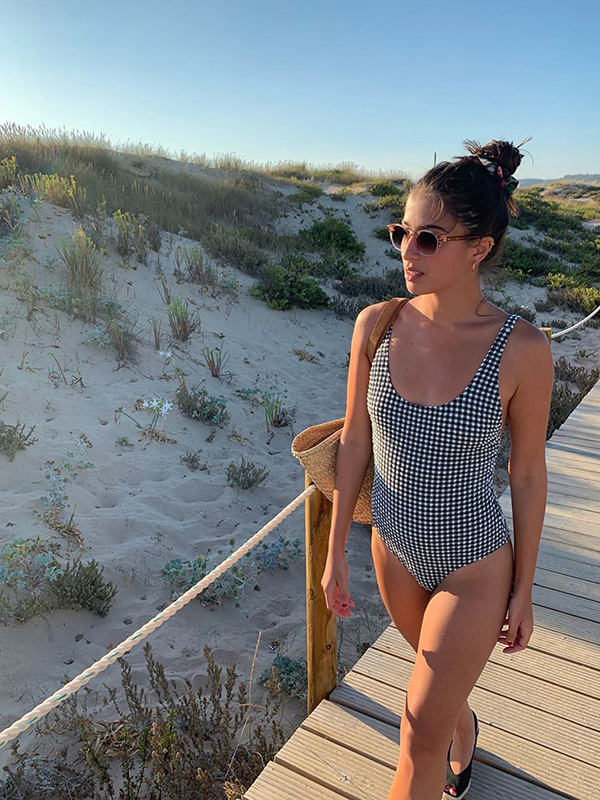
Heather Rogers, MD, is the founder and CEO of Doctor Rogers Restore and co-founder of Modern Dermatology in Seattle. She says mineral and chemical sunscreens work differently to protect the skin from UV rays. Mineral sunscreens, like zinc oxide and titanium dioxide, sit on top of the skin and block rays like reflectors. On the other hand, chemical sunscreens—oxybenzone, octinoxate, octisalate, and avobenzone—are absorbed into the skin. They absorb UV rays and convert them into heat, which is then released from the skin.
While Rogers says chemical sunscreens provide good UVA and UVB protection and are better than not using anything, they can be absorbed into the body. "We can measure them in our blood and urine," she says. "Even though they are well-studied, labeled by the FDA as nontoxic, do not cause cancer (despite some reports out there), and have not been shown to cause hormone disruption in humans, they do accumulate in us. I would like to minimize the accumulation of any unneeded chemicals in my body, my patients' bodies, and in our world whenever possible. Further, avobenzone is a common cause of sunscreen allergy, and oxybenzone is contributing to the death of coral reefs."
When it comes to mineral sunscreens, Rogers prefers ones that contain zinc oxide because it protects against both UVA and UVB rays. (UVA causes brown spots and wrinkles, and UVB causes sunburns.) "Titanium dioxide is another good physical sunscreen, but it only protects from UVB rays, so products need to have both titanium dioxide and zinc oxide to provide broad-spectrum protection," she explains.
How to Decipher SPF Ratings

I've always reached for the higher SPF because I thought the bigger the number, the better it would protect. However, I didn't really understand the science behind it. "Dermatologists recommend using a sunscreen with an SPF of at least 30, which blocks 97% of the sun's UVB rays," says Marmur. "The higher-number SPFs do block the sun's UVB rays slightly more. Of course, it's important to remember that even high-number SPFs need to be reapplied throughout the day."
Rogers adds, "SPF only describes protection from UVB rays, the sunburn rays that also damage your skin's DNA. UVA rays penetrate the skin more deeply, causing wrinkles and brown spots. Instead of looking for a product with the highest SPF, look for a product with at least an SPF of 30 that is also labeled broad-spectrum protection."
Sunscreen and Skin Type

Rogers says finding a sunscreen that is good for your particular skin type will take some hunting and experimenting. "If you have dry skin, look for formulations that have hydrating ingredients," she explains. "If you have oily skin, opt for something with a matte finish that's oil-free. If you have sensitive skin, mineral-based sunscreens are particularly important because the most common chemical sunscreens can be irritating, while zinc oxide is calming."
She believes sunscreen should be sunscreen. In other words, she cautions against using all-in-one products. Instead, use an antioxidant serum (like a vitamin C serum) and a moisturizer each morning, apply a liberal layer of sunscreen, and you're good to go. "The all-in-one products never work as well as specialized products," she says.
Finally, there's a common misconception that zinc sunscreens don't work well on sensitive or acne-prone skin. Rogers says that they're actually the better choice because they're naturally anti-inflammatory and are less likely to cause allergic reactions.
Lotion vs. Spray Sunscreen

I go back and forth between using lotion and spray on my body, so I wanted to know if there was a difference in efficacy. It turns out it's mostly based on personal preference. "What is most important is for sunscreen to be applied daily and reapplied throughout the day to ensure your skin is consistently protected," Marmur says. "When using an aerosol sunscreen, I recommend holding the can about four to six inches from the body and slowly applying liberally onto the skin until it becomes visible. I would then gently spread the formulas to your neck, ears, chest, back, etc., to ensure you did not miss any sections of your body. When using a lotion body sunscreen, I would use at least a shot glass amount and spread over the skin using circular motions."
Rogers suggests you keep a variety of sunscreen products for different activities and different areas of your body. "You need the one you wear every day, the water-resistant one you use when you go to the beach or pool, the powder version you use on your hair part and to reapply during the day when you are wearing makeup," she explains. "I like my skincare products to be specialists. Often, the more a single product claims to do, the less likely it is to do all those things well."
How to Apply Sunscreen

First and foremost, both Rogers and Marmur recommended reapplying sunscreen every two to three hours when you're outside, even when it's cloudy. If you're using a mineral sunscreen, apply it after your moisturizer but before your makeup. If you're using a chemical sunscreen, Roger says you should apply it before moisturizer, as it needs to be able to absorb into the skin to work most effectively.
Even if you're spending most of your time indoors, you still have to apply sunscreen. Take it from Marmur. "I have several patients who have shared with me that their melasma is getting worse, yet they have not been outside," she explains. "What we need to remember is that we need to wear sunscreen even inside our house because of the sun's harmful UVA/UVB rays. Even the blue infrared light emanating from our computer screens can cause damage to our skin!"
This article was originally published at an earlier date and has since been updated.
Sarah is lifestyle writer and editor with over 10 years of experience covering health and wellness, interior design, food, beauty, and tech. Born and raised in Los Angeles, she attended New York University and lived in New York for 12 years before returning to L.A. in 2019. In addition to her work at Who What Wear, she held editor roles at Apartment Therapy, Real Simple, House Beautiful, Elle Decor, and The Bump (sister site of The Knot). She has a passion for health and wellness, but she especially loves writing about mental health. Her self-care routine consists of five things: a good workout, “me” time on the regular, an intriguing book/podcast/playlist to unwind after a long day, naps, and decorating her home.